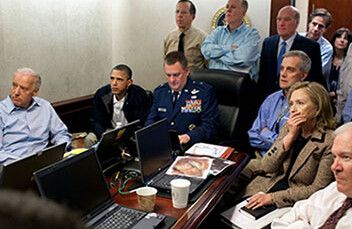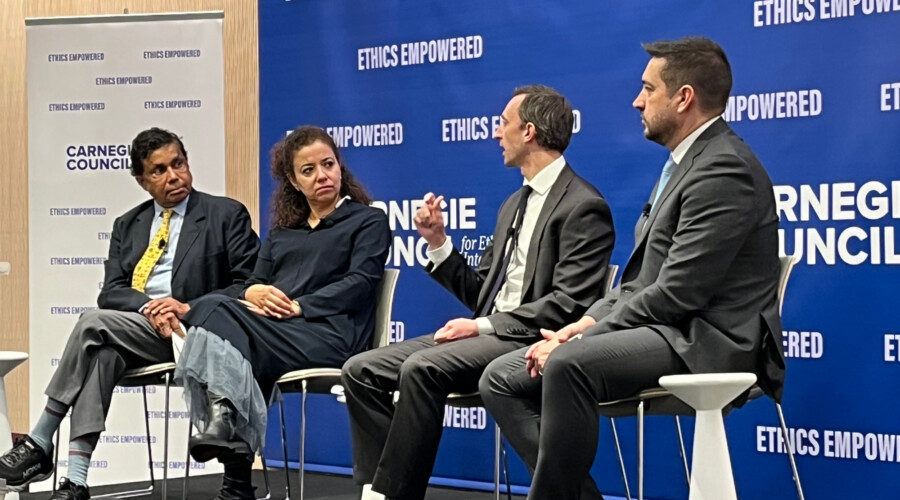With the publishing of "No Easy Day," a tell-all from a retired Navy SEAL about the raid that killed bin Laden, questions are being asked about how much the public needs to know. Should free speech be limited when it comes to national security matters?
America's top selling book may be popular with the masses, but it's upsetting many government officials. No Easy Day offers a first-hand account of the raid that killed Osama bin Laden. A retired Navy SEAL who played a central role in the 2011 mission wrote the book. And he sheds new light on the top-secret operation that is hailed as President Obama's crowning foreign policy achievement.
But American officials are uneasy with the tell-all. Author Matt Bissonette, writing under the pseudonym Mark Owen, did not seek the Pentagon's approval before publishing his book, upsetting Defense Secretary Leon Panetta. Worse still, Panetta says the book may have exposed confidential information and could endanger future covert operations.
It's that allegation that makes the book's release so controversial. According to Panetta, while Americans have a right to know how bin Laden was killed, the government should limit that right when it jeopardizes national security.
Still, those who side with the author argue that the Pentagon's criticism has less to do with national security and more do to with its controversial portrayal of bin Laden's death. No Easy Day suggests that bin Laden was unarmed. That calls into question the mission's classification as "capture or kill." Perhaps Navy SEALs were never meant to capture bin Laden at all.
Which raises the question: Just how much should the public know about the death of Osama bin Laden? Should free speech be limited where national security is in question? And how can we be sure that such limitations are legitimate? What do you think?
For more information see
Mark Owen and Kevin Maurer, No Easy Day: The Firsthand Account of the Mission That Killed Osama Bin Laden, Amazon.com, September 4, 2012
Scott Pelly and Henry Schuster, "SEAL's first-hand account of bin Laden killing," CBS News, September 9, 2012
Associated Press, "Panetta Hints Punishment For Bin Laden Book Author," NPR, September 11, 2012
Photo Credits in order of Appearance:
gorekun
U.S. Embassy New Zealand [also for pictures 4, 5, 16]
elswatchoboracho
Secretary of Defense [also for picture 8]
Michelangelo Carrieri
U.S. Army [also for picture 12]
David B. Gleason
Surian Soosay
DVIDSHUB
Kate Gardiner
Leo Reynolds



